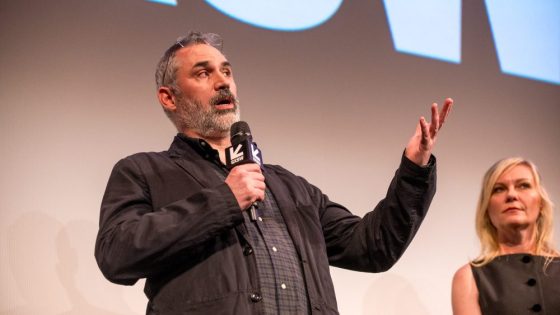In Alex Garland‘s “Civil War,” the Western forces of Texas and California hardly remember what they’re fighting for.
At least, Garland doesn’t say outright what they’re fighting for. The film, which had its world premiere at SXSW on Thursday, depicts a near-future U.S. at the climax of a civil war where the two most populous states have seceded. Rather than explaining the politics that landed the country in such chaos, “Civil War” focuses on a group of journalists who document all avenues of the conflict.
“The film is intended to be a conversation, so it doesn’t assert too much,” the British director said in a post-screening Q&A. “But I also believe that everybody understands internally why. This is also true of my country and many, many other countries that are dealing with the effects of polarization and populism: We don’t need it explained. We know exactly why it might happen. We know exactly what the fault lines and the pressures are.”
As such, viewers never get an explanation for why Texas and California have united against the U.S., an odd geographical pairing that garnered much discussion online when A24 released a trailer for “Civil War” in February.
“I could have made it into something that explains every beat in the way that lots of movies do, and that’s okay, if they want to do that,” Garland continued about his choice to avoid writing a specific political context. “That’s fine. But it didn’t feel appropriate for this. And it’s not in the nature of a conversation. I wanted this film to be finding points of agreement between everybody, hopefully.”
Garland took inspiration from the journalists he grew up around, as his father was a political cartoonist.
“I knew how seriously they took what they did, and one of the things that’s been difficult in the last — I’m gonna arbitrarily say — 15 years [is that] journalists are getting shat on,” he said. “They’re being distrusted. I wanted my journalists as the hero, because there’s a simple point at the heart of it. In any kind of free country, journalists are not a luxury. They’re a necessity. Now, journalists have done some of the work to be distrusted themselves, but a lot of other interested parties have been complicit in making them untrusted. I think it’s unhealthy, and I think it’s wrong.”
“Civil War” stars Kirsten Dunst, Cailee Spaeny, Wagner Moura and Stephen McKinley Henderson as war journalists, with Nick Offerman as the U.S. president. Dunst, Spaeny and Moura joined Garland onstage in Austin to discuss how they prepared for their roles.
“As soon as I got the role, I asked Alex to give me these cameras so I was most the most comfortable I can possibly be. I would look at Alex a lot, the way he wrapped his strap around his wrist, how you held your camera,” said Dunst, who plays Lee, a journalist famous for documenting what Spaeny’s character calls the “antifa massacre.”
For Spaeny, who plays a young photojournalist who idolizes Lee, “it’s such a gift whenever you can enter a character with a hobby or a passion or a dream — getting to figure out Jessie through her love of photography and reading up up on Lee Miller and Don McCullin and Lynsey Addario and finding the parallels between me and her.”
“I’ve read a lot about combat journalism, and I reached out to combat journalists,” added Moura, who plays Joel, Lee’s colleague. “The most important thing was, ‘What does that guy feel in a combat zone?’”
To Garland, the most important thing was to take an anti-war stance.
“Cinema is inclined to not being anti-war for lots of reasons. Action does contain adrenaline. It becomes seductive,” he said. “‘Apocalypse Now’ is an incredibly brilliant film, but I’m not sure you could call it anti-war, because it’s too it’s too seductive; it pulls you in to a dark romance. We were going to all sorts of efforts to avoid that and make this not seem like a good idea, to have a civil war.”
Garland tried to achieve that by using upbeat needle drops, chosen “to be jarring and aggressive and speak to the perverse pleasure in what was happening, but not to be seductive — to actually be slightly repellent. With the conjunction of the execution of some soldiers with this music, not feeling like ‘Fuck yeah,’ but feeling tarnished somehow.”
Source Agencies


